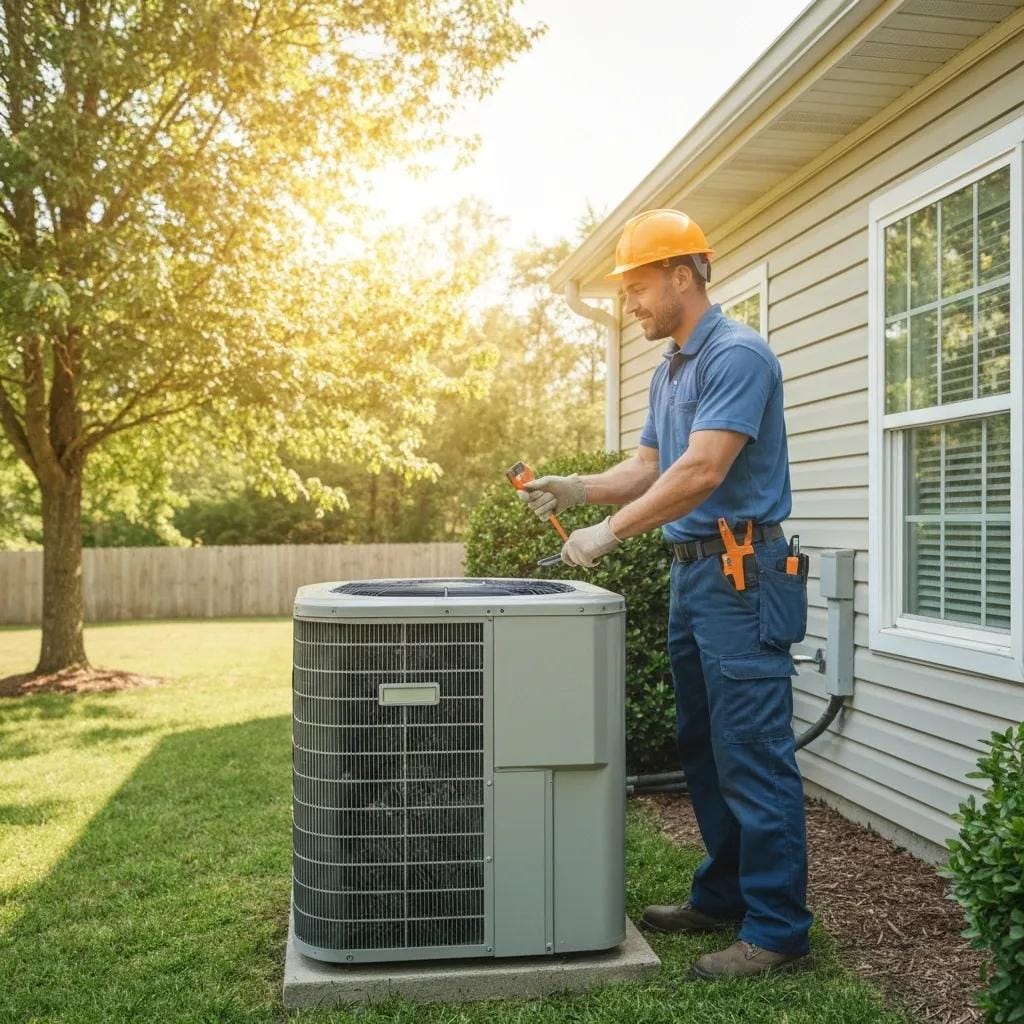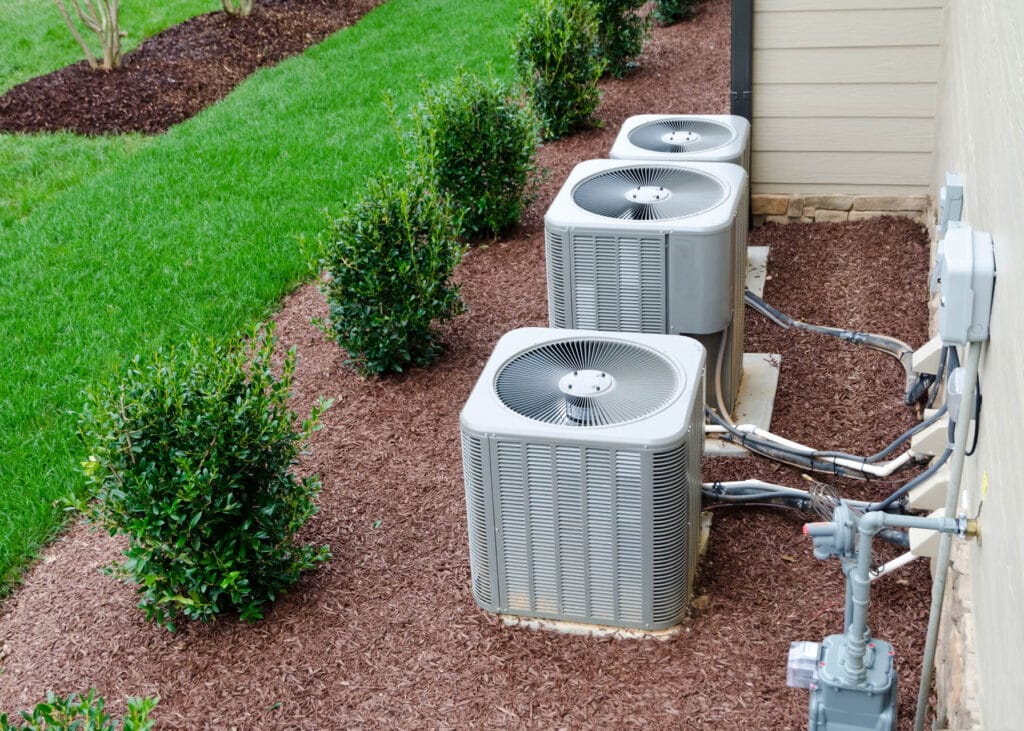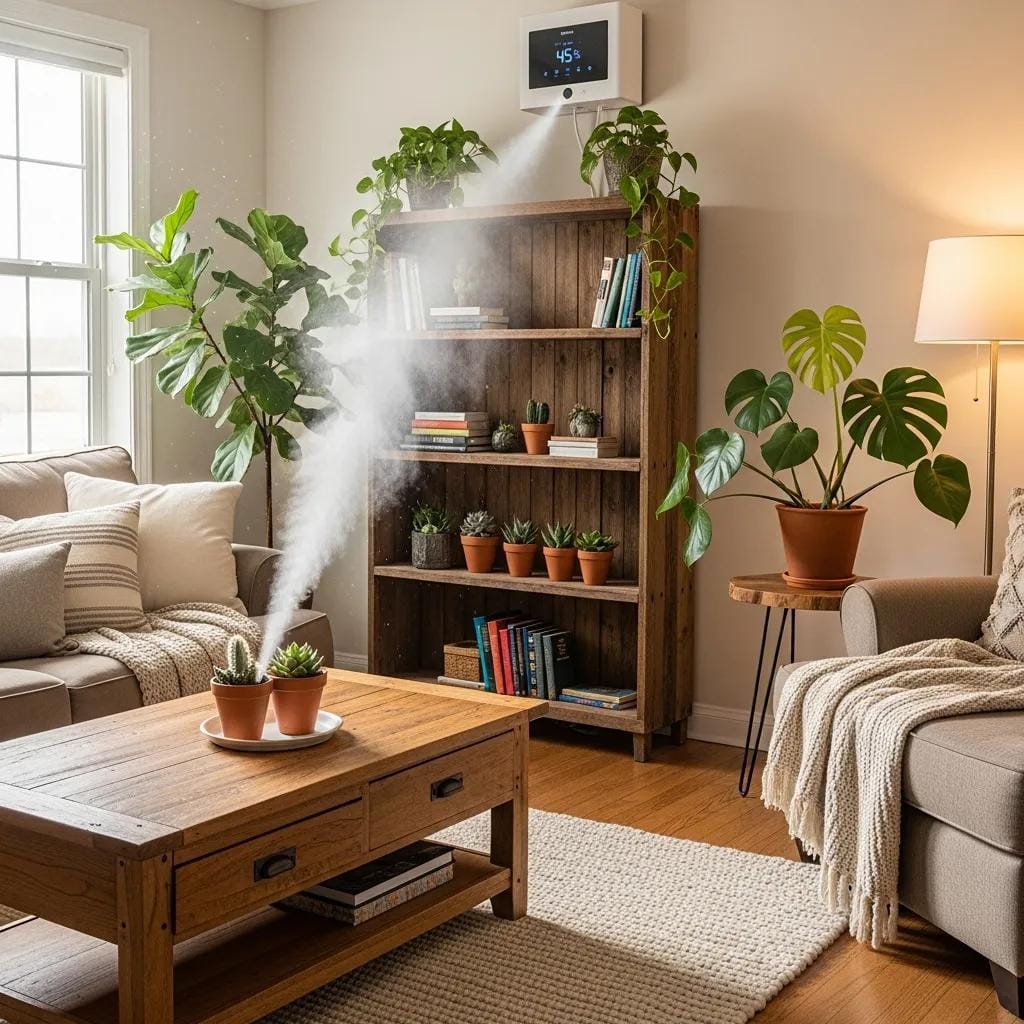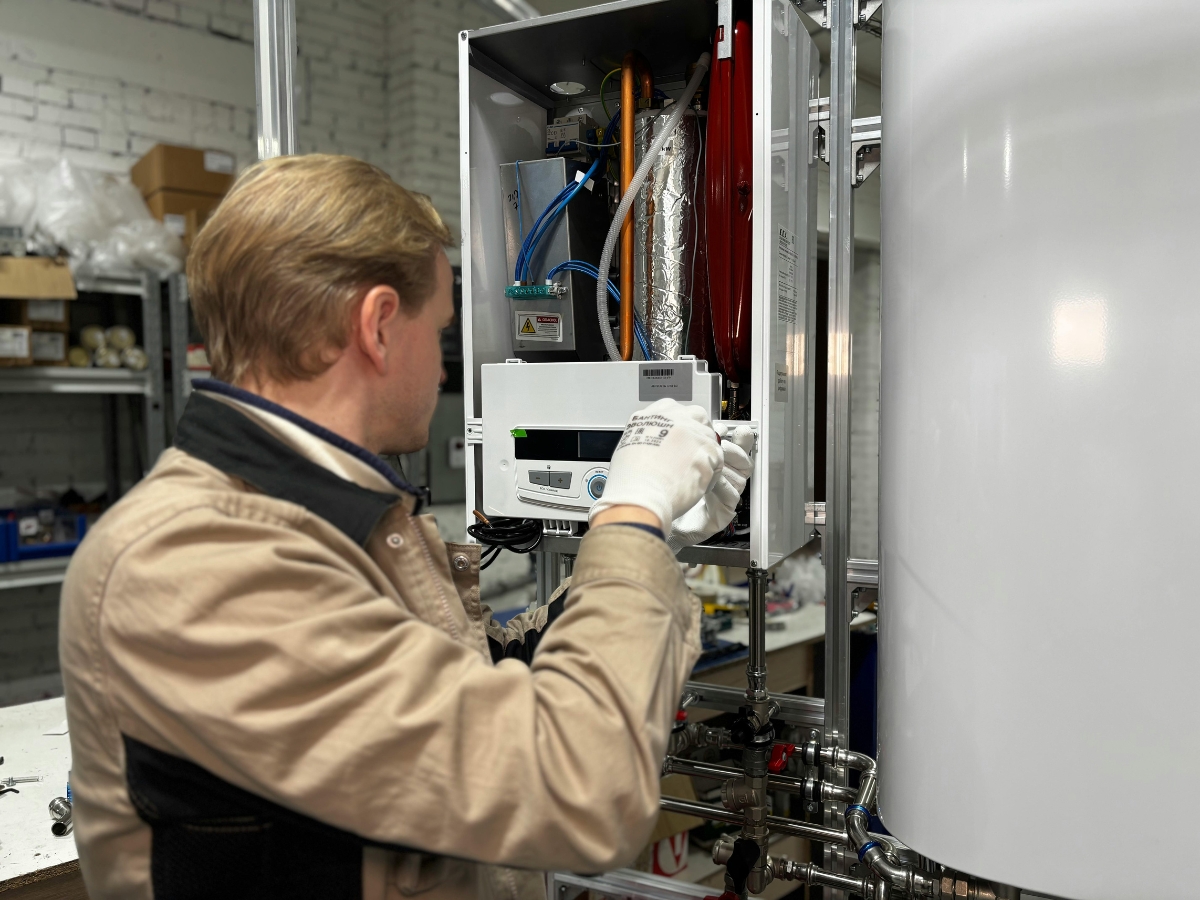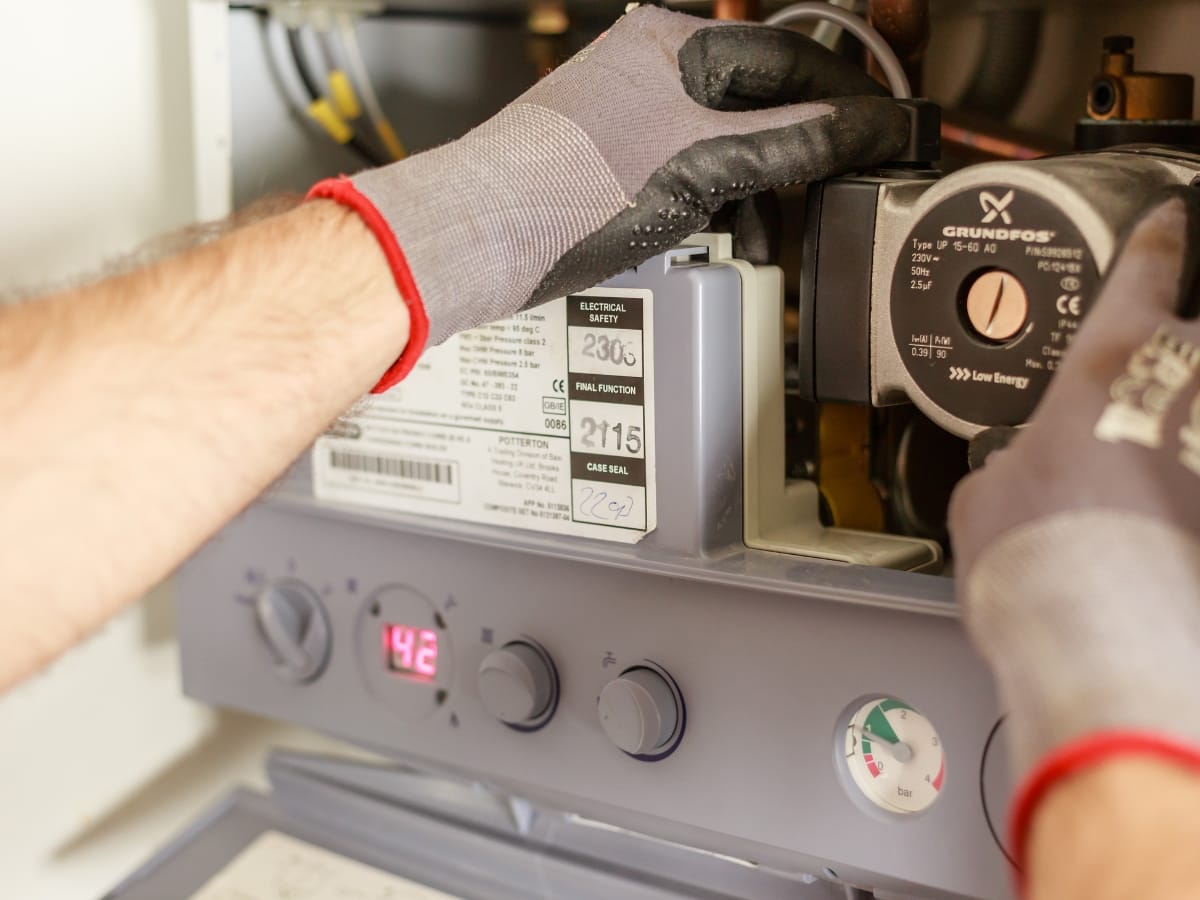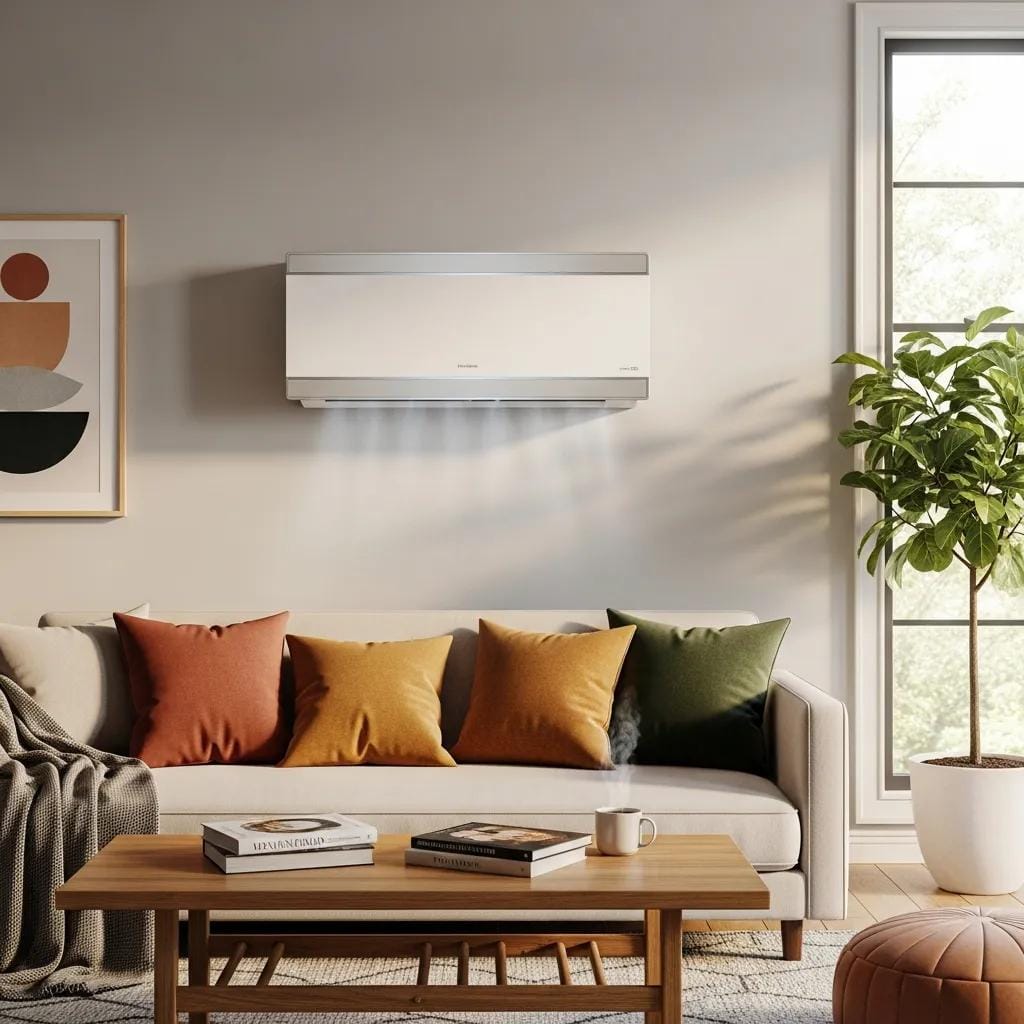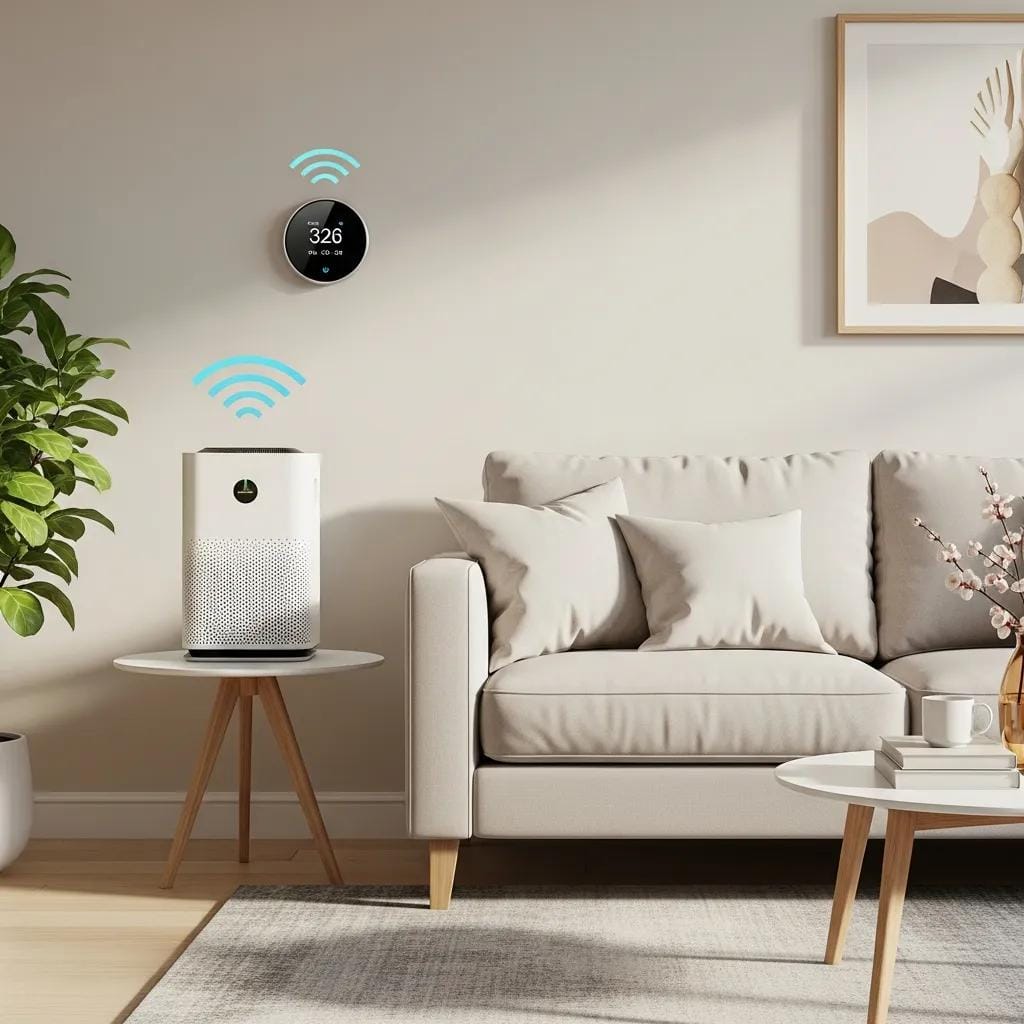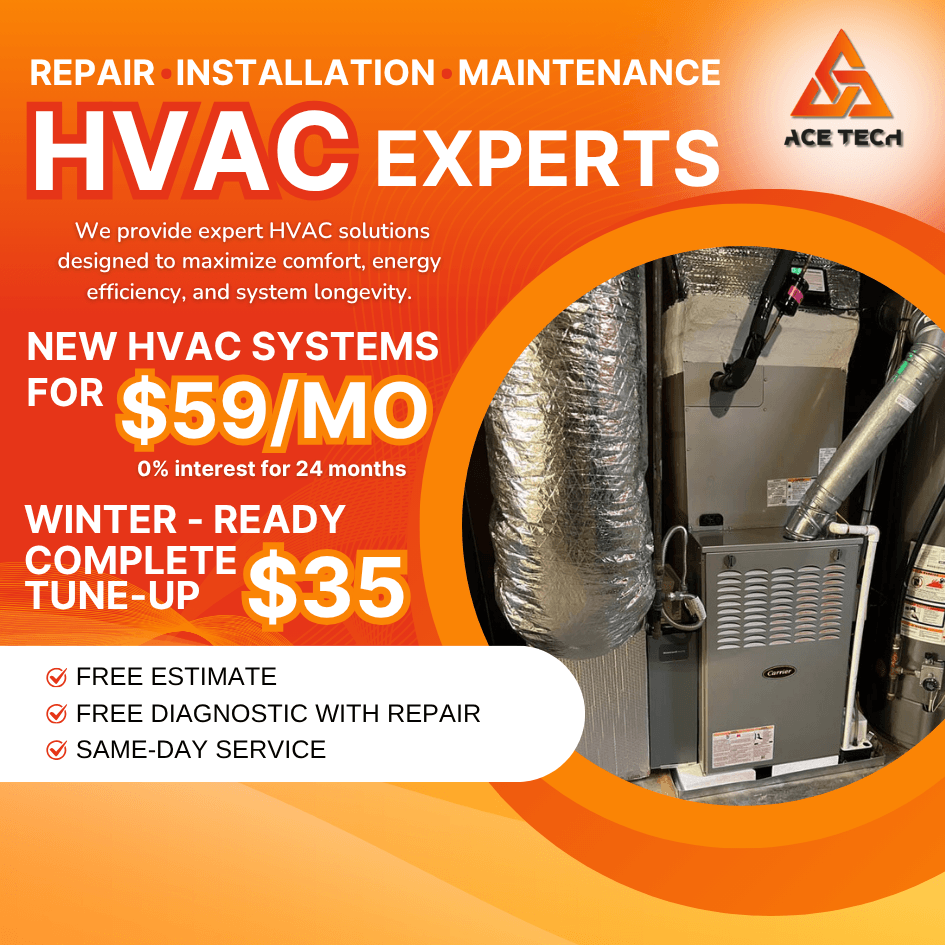Keeping your HVACsystem in top shape with an annual HVAC maintenance means your heating and cooling will run at peak efficiency, your warranty stays valid, and your home stays comfortable all year long in Metro Atlanta. For homeowners dealing with our humid summers and mild winters, skipping these check-ups can lead to higher energy bills and unexpected breakdowns. This guide will walk you through why regular service is key to maintaining good indoor air quality, making your system last longer, cutting down on repaircosts, and saving energy. We’ll cover the main perks of routine tune-ups, how maintenance boosts efficiency, ways to protect your investment, what a professional inspection involves, the value of service plans, simple DIY tasks you can handle, and why AceTech GA is your go-to local HVAC expert.
Table of Contents
Why Is Annual HVAC Maintenance Essential for Your Home?
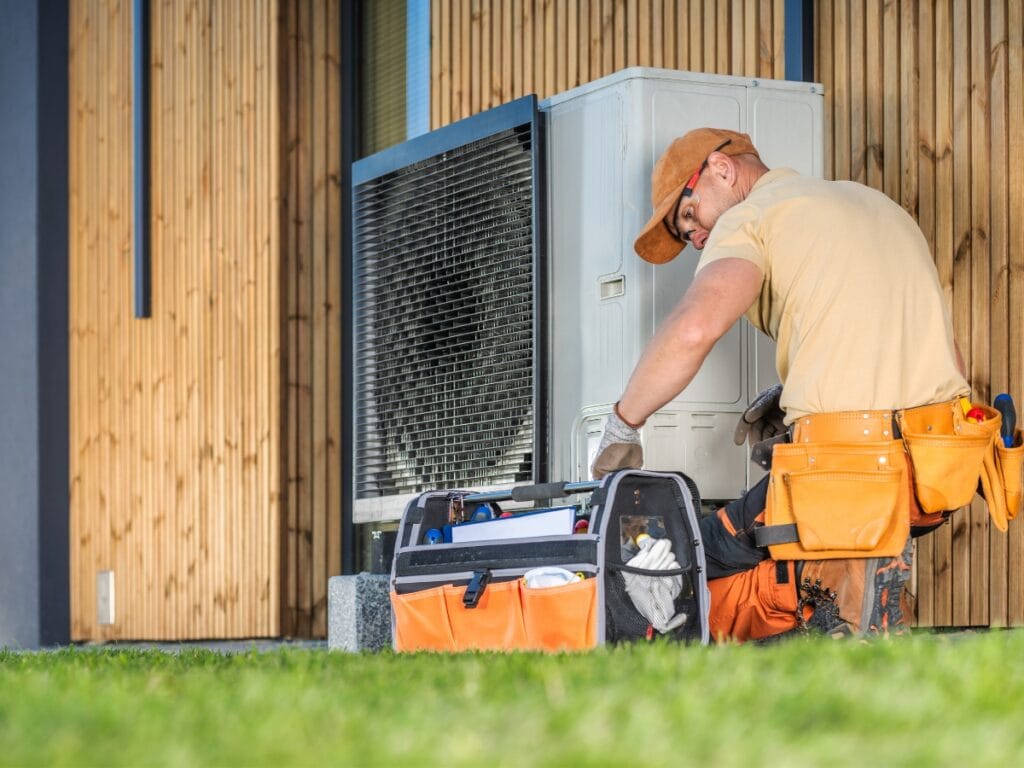
Annual HVAC maintenance is about prevention and steady performance. A yearly tune-up inspects, cleans, and calibrates the parts that keep your system running. Catching small issues early prevents breakdowns and helps the equipment last longer. In a climate like Atlanta, clean coils and correct refrigerant levels keep the compressor from working harder than it should, which saves energy and reduces wear.
Key Benefits Of Regular Tune-Ups
A well-maintained system uses less electricity because fans, motors, and coils are clean and moving freely. That shows up on your utility bill over the course of a season. Indoor air quality improves when filters are changed on schedule and dust is cleared from the blower and return paths. Routine checks also reduce surprise repairs by finding loose wires, weak capacitors, or worn belts before they fail. With dampers set correctly and thermostats calibrated, rooms hold steadier temperatures, so comfort is easier to maintain across the house.
How Maintenance Improves Reliability
Reliability comes from small adjustments made at the right time. Tight electrical connections stop nuisance shutdowns. Fresh lubricant on motors reduces heat and noise. A technician can spot early signs of a refrigerant leak, correct airflow that is choking a coil, or replace a frayed belt that would have failed under peak load. When these items are handled before summer heat or a cold snap, the system is far less likely to quit when you need it most.
Warranty Compliance And Documentation
Most manufacturers require proof of yearly service to keep warranty coverage in force on major parts like compressors and heat exchangers. A dated service record that lists the work performed protects you if a covered component fails. Skipping visits can leave you paying for a repair that would have been handled under warranty, so keeping paperwork in one place is worth the small effort.
Best Time To Schedule And What To Expect
The best times to book are early spring for cooling and early fall for heating. That timing gives you a buffer before demand surges and helps you avoid long wait times. A standard visit usually includes cleaning or replacing filters, washing or brushing coils, checking refrigerant charge, testing safety controls, measuring voltage and amperage on motors, clearing the condensate drain, and verifying temperature differences across the system. The technician should leave a short report that notes readings, any parts replaced, and items to watch.
Simple Owner Habits Between Visits
You can support the system with a few basic habits. Keep supply registers and returns clear of furniture and rugs. Replace or clean filters as directed by the filter type and your household’s needs. Trim plants around outdoor units so air can move freely, and rinse pollen and debris from the cabinet fins with a gentle stream of water. Check that the thermostat follows your schedule and that no one has bumped it off program.
Annual HVAC maintenance lowers energy use, steadies comfort, and reduces the chance of midseason failures. It also protects warranty coverage and helps your equipment reach its expected lifespan. A single visit each year sets the system up to handle Atlanta’s heat and humidity without wasting power or putting parts at risk.
How Does Annual HVAC Maintenance Boost Energy Efficiency and Lower Utility Bills?
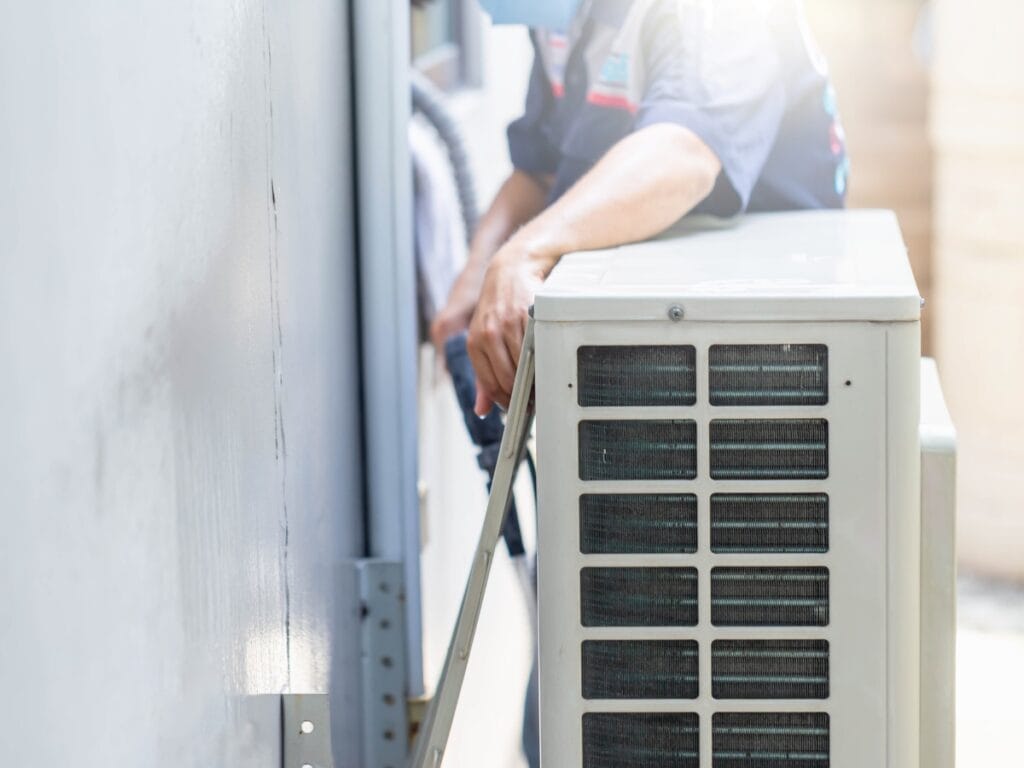
Annual HVAC maintenance enhances energy efficiency by restoring optimal airflow, ensuring correct refrigerant levels, and fine-tuning control settings. Clean coils transfer heat more effectively, which reduces the compressor’s workload and lowers electricity consumption. This focused maintenance targets the system’s most energy-intensive components, maximizing your utility savings.
What HVAC Components Affect Energy Efficiency the Most?
Here’s a look at the key HVAC parts that significantly impact energy use when properly maintained:
| Component | Role | Impact of Maintenance |
|---|---|---|
| Condenser Coil | Releases heat from refrigerant | Cleaning the coil restores efficient heat transfer, easing the load on the compressor. |
| Evaporator Coil | Absorbs indoor heat | Removing dirt improves cooling capacity and airflow efficiency. |
| Refrigerant System | Circulates coolant | Maintaining the correct refrigerant charge prevents the compressor from running excessively and wasting energy. |
| Air Filter | Traps dust and particulates | Regular replacement ensures proper airflow and prevents strain on the system. |
| Thermostat | Controls temperature and cycles | Calibration ensures accurate temperature readings and efficient system cycling. |
How Does Cleaning and Calibration Reduce Energy Consumption?
Cleaning debris from coils, lubricating moving parts, and calibrating controls reduces friction and heat loss, leading to shorter equipment run times. Optimized refrigerant levels and precise thermostat settings minimize unnecessary on/off cycles, potentially cutting energy usage by up to 30%. Fine-tuning airflow ensures no single component is overworked, promoting smoother and more efficient operation.
How Much Can You Save on Energy Costs with Regular Maintenance?
Homeowners who schedule annual tune-ups typically see their utility bills drop by 15% to 30%. For Metro Atlanta residents, this can mean saving hundreds of dollars each year on heating and cooling costs. These savings not only cover the cost of the service but also help maintain your system’s health, offering a clear return on your investment.
How Does Annual HVAC Maintenance Extend Your System’s Lifespan?
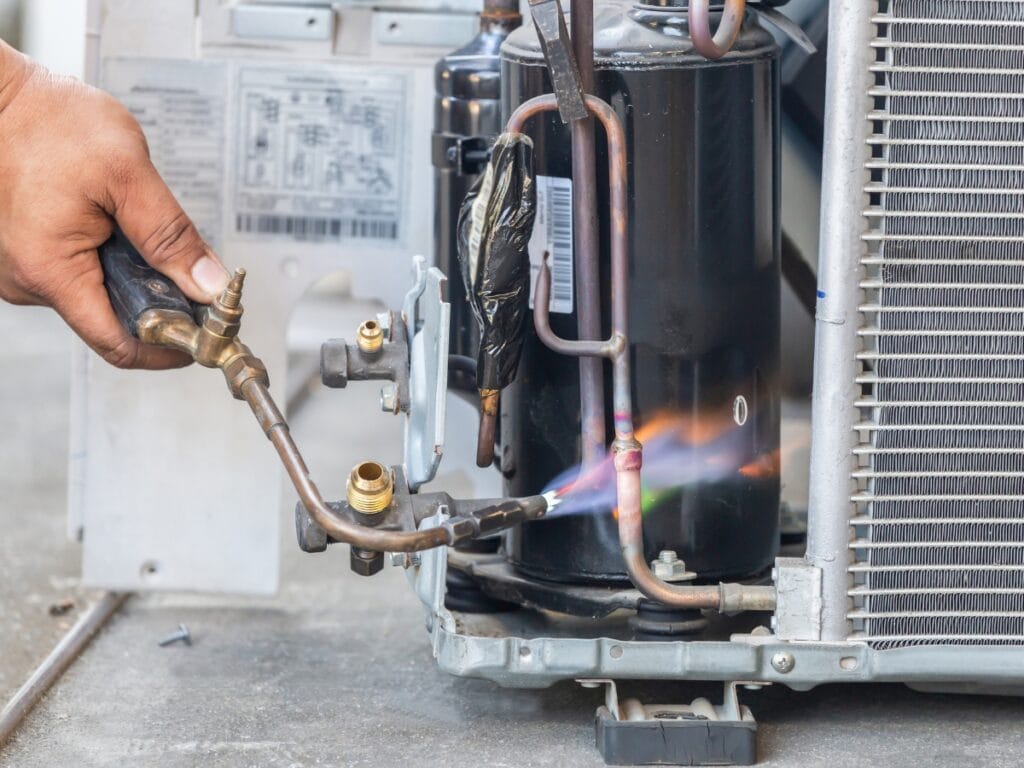
Annual HVAC maintenance keeps small problems from turning into big ones. A technician cleans, tightens, and calibrates the parts that carry the load every day. When coils are clean, airflow is correct, and electrical connections are solid, the compressor, blower, and heat exchanger do not have to fight through extra resistance. That lower strain slows wear and helps the system run within its design limits. Over the years, this difference adds up. Well-cared-for equipment often lasts several seasons longer than a system that is only serviced when something breaks.
Problems Maintenance Prevents
Most breakdowns start as minor issues. Dirt on the evaporator coil forces the system to run longer to reach the set point, which overheats the compressor. Low refrigerant from a tiny leak harms efficiency and invites icing. Loose or corroded electrical connections create voltage drops that trip safeties and damage parts. Dry motor bearings add heat and noise and eventually seize. Blocked condensate drains trigger shutdowns and can cause water damage. Leaky ducts waste cooled or heated air and push the blower to work harder than it should. A routine visit looks for these common trouble spots and corrects them before they shorten equipment life.
How Early Detection Protects Your Investment
A good tune-up includes diagnostic checks that show how the system is behaving under load. Static pressure readings point to airflow problems. Superheat and subcooling values show if the refrigerant charge and metering device are in the right range. Temperature splits across the coil confirm that heat transfer is happening as expected. If a fan motor draws more amperage than its nameplate rating, the tech can investigate before it fails. Catching these signs early turns a potential emergency into a simple fix, which saves money and preserves the life of major components.
Typical Lifespan With Preventative Care
Most residential HVAC systems can run 15 to 20 years when they receive consistent maintenance. Neglected systems often need major repairs or replacement closer to 10 to 15 years. The difference comes from reduced cumulative wear. Bearings stay lubricated, coils stay clean, and electrical parts stay within safe temperatures. In a climate like Metro Atlanta, where long cooling seasons and humid summers push equipment hard, that added 3 to 5 years is significant. It delays a large capital expense and keeps comfort steady through peak weather.
What To Expect During A Yearly Visit
A standard service includes cleaning or replacing filters, washing or brushing the indoor and outdoor coils, checking refrigerant levels, tightening electrical connections, lubricating accessible bearings, clearing the condensate drain, and verifying thermostat operation. The technician should measure temperature differences across the coil, record motor amperage, and note static pressure at key points. You should receive a short report with readings, what was adjusted, and any items to watch before the next season.
Owner Habits That Help Between Visits
You can stretch the benefits of annual HVAC maintenance with a few simple steps. Keep supply registers and return grilles clear. Change filters on schedule based on your filter type and household needs. Rinse debris from the outdoor unit with a gentle stream of water and trim plants back at least two feet for airflow. Check that your thermostat follows its schedule and that vents are open in lived-in rooms.
What Does a Professional Annual HVAC Tune-Up Include?
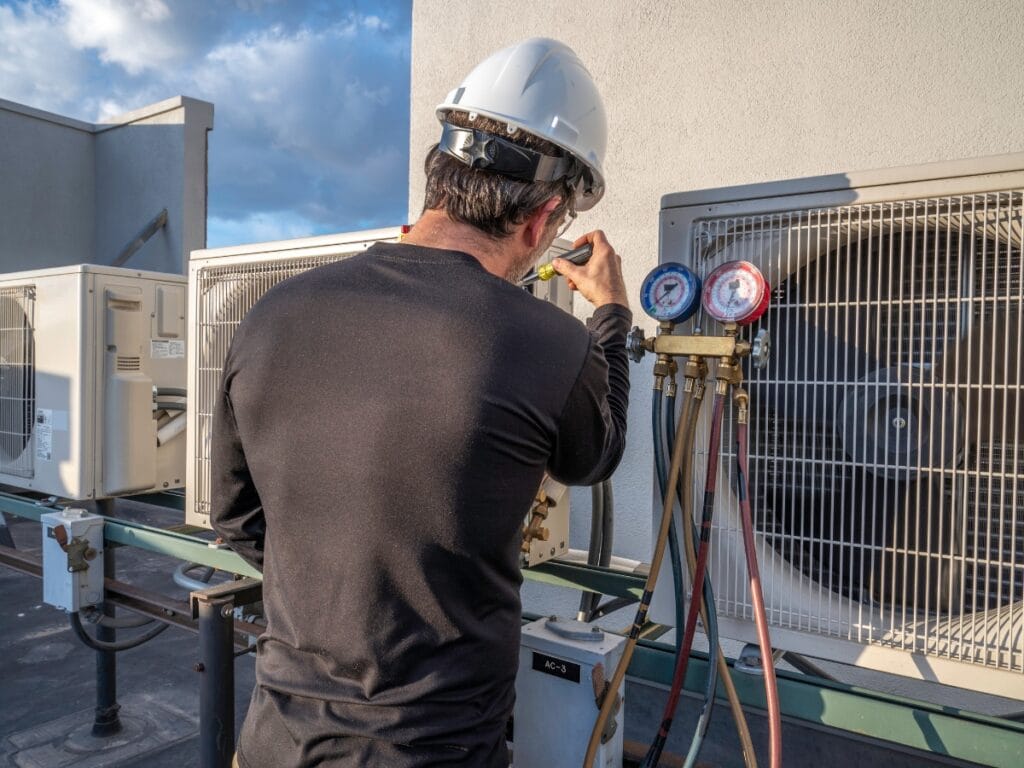
A proper tune-up is a focused check of the parts that keep your system running every day. A technician inspects, cleans, adjusts, and tests the major components, then documents readings so you know how the equipment is performing. The goal of annual HVAC maintenance is simple: catch small issues early, keep efficiency steady, and verify that safety controls work the way they should.
Inspection And Cleaning For AC Units
A spring visit gets your cooling side ready for heat and humidity. The technician cleans the condenser and evaporator coils so heat can move in and out of the system without extra strain. Refrigerant levels are measured and corrected if needed. Electrical connections are checked and tightened to prevent nuisance shutdowns. Motors and other moving parts are lubricated when the design allows. Thermostat settings are confirmed and airflow is balanced so each room gets the cooling it should. This work helps the compressor run within its limits and reduces the chance of midseason breakdowns.
Essential Furnace Tune-Up Steps For Fall And Winter
When temperatures drop, the heating side needs equal attention. Filters are cleaned or replaced so the blower does not fight clogged media. The heat exchanger is inspected for cracks or corrosion and adjusted where applicable. Ignition controls and burners are tested for reliable starts and clean flame. Gas pressure and safety limits are verified against manufacturer specs. The blower assembly and duct connections are checked for wear or air leaks. These steps keep fuel use efficient and support steady, safe heat on cold nights.
How Heat Pump Maintenance Differs
Heat pumps handle both heating and cooling, so the visit includes checks you will not see on a standard AC or furnace. The reversing valve is tested to confirm smooth changeover between modes. The defrost cycle is reviewed to be sure outdoor frost clears as designed. Backup heat elements are run and measured so they are ready when temperatures dip. Lubrication and electrical checks on the outdoor unit help the system switch seasons without surprises. With these items set, a heat pump can maintain comfort across Atlanta’s swings in weather.
Safety Checks Included In A Tune-Up
Safety is built into every visit. Technicians test for carbon monoxide near the heat exchanger and confirm proper venting through the flue. They check for gas leaks and verify stable gas pressure. Electrical circuit protection is tested so shorts are more likely to trip a breaker than damage a component. Drain lines are cleared to prevent water backing up into the air handler. These measures protect both the system and the people in the home.
What You Should Expect After The Visit
You should receive a short report that lists readings, adjustments made, and any parts that may need attention soon. If something is out of range, the technician explains options before work proceeds. With annual HVAC maintenance on this schedule, most systems run more efficiently, break down less, and last longer. The process is straightforward, repeats each season, and pays off in lower energy use and fewer urgent repairs.
How Do HVAC Maintenance Plans and Contracts Benefit Metro Atlanta Homeowners?
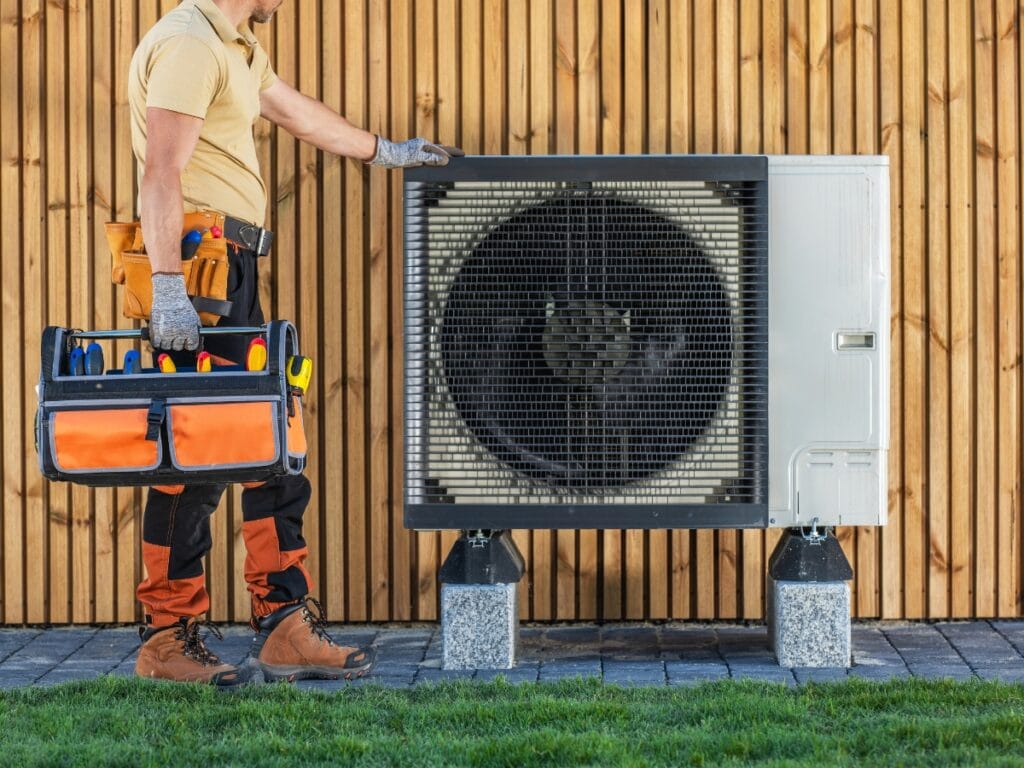
Hot, humid summers and quick swings in shoulder seasons put steady strain on heating and cooling equipment. A simple way to keep pace is to put routine care on a schedule. Annual HVAC maintenance bundles inspection, cleaning, and small adjustments so problems are found early and efficiency stays steady. A plan also takes the guesswork out of timing, which is useful in a market where demand spikes the moment the first heat wave or cold snap hits.
Advantages Of Enrolling In A Plan
A good plan gives you priority on the calendar when the weather turns. That means shorter waits and fewer days relying on portable fans or space heaters. Many plans lower diagnostic and labor rates, which trims the cost of inevitable fixes. Automatic reminders keep spring cooling checks and fall heating checks from slipping through the cracks. The service history that builds over time helps with warranty compliance on major parts and gives a clear paper trail if you ever sell the home. The net result is a system that runs closer to design specs and a routine that does not depend on memory.
How Plans Prevent Costly Repairs
Most breakdowns start small. A loose wire, a slow refrigerant leak, or a clogged drain does not seem urgent until it takes out a compressor or shorts a control board. Regular tune ups catch those early signs. Technicians measure superheat and subcool, record motor amperage, confirm temperature splits, and check static pressure so airflow issues show up before they damage parts. Replacing a worn belt or tightening a connection during a visit is cheaper than an emergency call on the hottest Saturday of July. Over a season, fewer surprises usually means a lower total repair bill and less time without cooling or heat.
Typical Costs In Atlanta
In Metro Atlanta, a single seasonal tune up often lands between $100 and $200 per visit, depending on system type and age. Many homeowners choose a plan that includes two visits each year along with small discounts on parts. That spend tends to come back through lower energy use, fewer urgent repairs, and warranties that remain valid because service was documented. For households that run equipment hard, the predictability alone is worth it.
What To Look For In A Maintenance Contract
Read the list of covered tasks and make sure it matches how you use the home. At minimum, look for coil cleaning appropriate to the system, checks of refrigerant charge, electrical tightening and testing, drain clearing, thermostat verification, and airflow measurements. Ask how priority scheduling works during peak weeks and whether after hours rates are different for plan members. Confirm what is included versus recommended so you are clear on any add ons before the technician arrives.
Making The Most Of Your Plan
Keep your end simple and consistent. Change filters on the recommended cycle, keep returns and supply vents clear, and rinse debris from the outdoor unit after storms. Save each service report so trends are easy to spot from year to year. If you hear a new noise or notice longer run times, mention it at the next visit. Small clues help techs zero in on issues quickly.
A straightforward plan paired with annual HVAC maintenance keeps equipment reliable, protects warranties, and smooths out costs. In a climate that pushes systems hard, that is a practical way to stay comfortable without overspending.
What DIY HVAC Maintenance Tasks Can Homeowners Perform Safely?
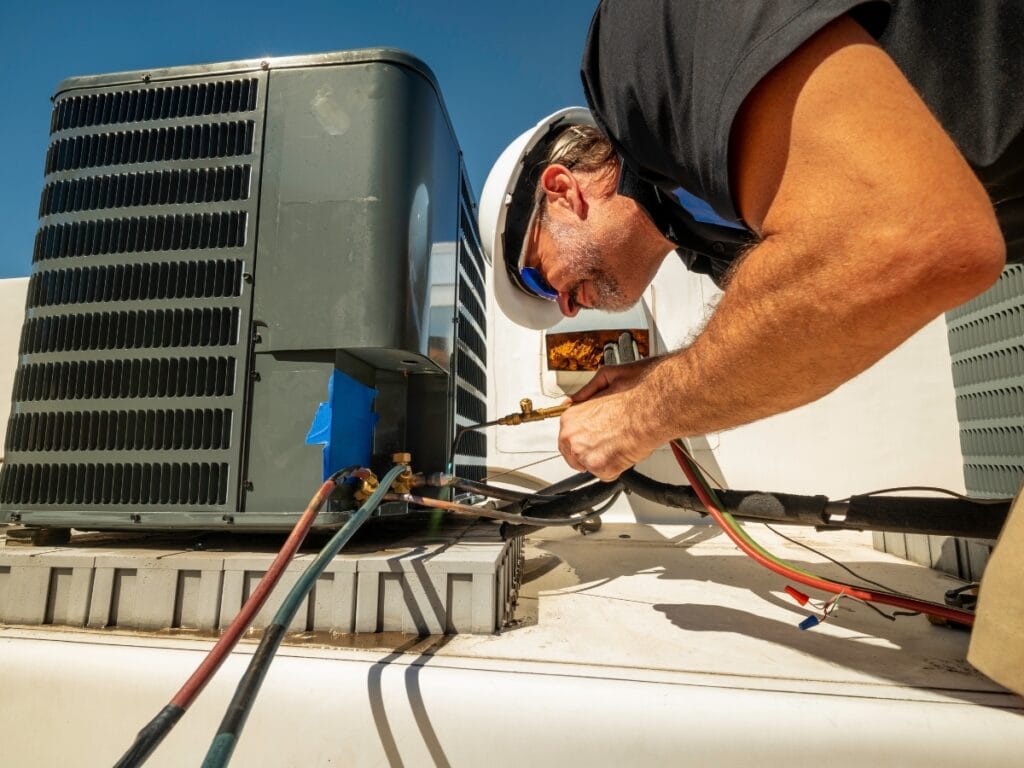
You can keep your system running smoother between tune-ups with a few simple habits that protect airflow and cleanliness. These tasks do not replace annual HVAC maintenance, but they reduce strain on parts and help your equipment hold temperature more consistently. Think of them as light upkeep that supports the professional work done each year.
How Often Should You Change Your Air Filter?
Most homes do well with a fresh filter every 30 to 90 days. The exact timing depends on the filter type, the number of people and pets in the home, and how often you run the system. If the filter looks gray or shows visible dust before the calendar says it is time, replace it early. A clean filter keeps the blower from working harder than it should, improves airflow at the registers, and helps your cooling coil stay cleaner. Mark the change date on the frame or set a reminder on your phone so the schedule is easy to follow.
Simple Upkeep Between Professional Visits
Give your outdoor unit some breathing room. After mowing, clear grass clippings and leaves from the cabinet and keep plants trimmed back a couple of feet so air can move freely. Inside, make sure supply registers and return grilles are not blocked by furniture, curtains, or rugs. If your thermostat uses batteries, swap them on a set schedule so the system does not shut off unexpectedly. A quick look at the condensate drain line during cooling season can also save headaches. If you see water pooling at the air handler or a drain line that looks clogged, call for service before it becomes a leak.
Know The Limits Of DIY HVAC Maintenance
There is a clear line between helpful homeowner tasks and work that belongs to a licensed technician. Checking or adding refrigerant, cleaning evaporator coils, opening electrical compartments, and running combustion safety tests require training and proper tools. Attempting those jobs can damage parts, create safety risks, or void warranties. Annual HVAC maintenance covers these items with calibrated instruments and documented readings. Your role is to keep the system clean and unblocked so the technician’s adjustments hold.
How To Prepare For Seasonal Changes
A few small steps make transitions easier. Before cooling season, rinse pollen and light debris from the outdoor coil with a gentle stream of water and confirm the thermostat is set to your warm weather schedule. Before heating season, verify that vents are open in lived-in rooms and that nothing has shifted to block the return. Take a quick walk through accessible spaces to look for obvious duct issues such as loose insulation or a section that has separated at a joint. If you use a heat pump, listen for normal defrost behavior on cold mornings and note anything that sounds unusual so you can mention it at the next visit.
When To Call A Professional
Short cycling, new rattles or grinding noises, ice on the refrigerant lines, weak airflow that is not improved by a clean filter, or a burning smell are signs that need a technician. A steady schedule of annual HVAC maintenance, paired with the simple tasks above, keeps small issues from becoming big ones and helps your system deliver reliable comfort through Atlanta’s busiest seasons.te efficiently until your professional service appointment.
Choose AceTech GA for Your Annual HVAC Maintenance in Metro Atlanta
An annual HVAC tune-up is more than just routine maintenance—it’s a proactive investment in your home’s comfort, efficiency, and long-term savings. By addressing small issues before they become costly repairs, you ensure your system runs smoothly year-round, even during Atlanta’s most extreme weather. At Ace Tech Heating & Cooling, our certified HVAC care technicians provide thorough, precision tune-ups tailored to your system’s needs. Schedule your maintenance today by calling (404) 369-9100 or visiting our website for a free quote—and enjoy peace of mind knowing your HVAC is in expert hands. Don’t wait until the heat or cold hits; protect your home now.

